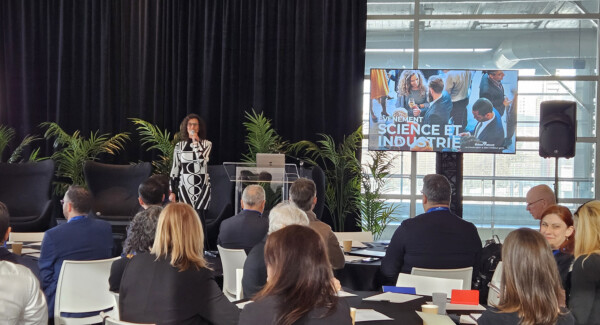Fifth CROP poll for Éduc’alcool during the pandemic shows trend is reversing.
Montreal, October 13, 2021 – For the first time since the start of the pandemic, we are seeing a trend reversal: more Quebecers have reduced their alcohol intake than have increased it. Specifically, 70% have not changed their drinking levels, 16% are drinking less, and 14% are drinking more, with only 2% of the latter group drinking a lot more. On the other hand, what Éduc’alcool anticipated as the lockdown was ending, summer was approaching, and restaurants and bars were reopening, has indeed occurred: more Quebecers (42%) exceeded the recommended low-risk drinking limits, even if only once in the last month; in fact, 16% of that group did so just once. Still, 27% of drinkers exceeded the recommended limits twice or more, compared to 22% in May 2021.
These are the main conclusions of the fifth survey on drinking in Quebec since the lockdown began, all of them conducted by CROP on behalf of Éduc’alcool. The latest one, completed in September 2021, follows the previous surveys conducted in April, May and November 2020, and May 2021.
“Spring turned to summer, and people began resuming their social lives and family gatherings. Given how humans have behaved historically whenever a society has emerged from a crisis or pandemic, we expected an increase in episodes of excessive drinking, although we hoped it would not be too pronounced. Only 5% of the survey sample significantly increased their drinking, but we must not let that minimize how important it is for certain groups of people, in particular the younger, the wealthier, and those who have been most affected by the pandemic, to reduce the amount they drink on each occasion. Furthermore, while the drinking situation in Quebec is not catastrophic, vigilance is still called for, along with more awareness and an extra little push in the right direction,” said Éduc’alcool Director General Hubert Sacy, commenting on the survey results.
“The trend reversal is major and it is the first sign that we are emerging from the crisis. But we still have to be watchful. While the number of people who are drinking more in order to relieve boredom has dropped significantly, the number of those who are drinking less because of the lack of social contact and fewer opportunities to drink is also down a lot. People appear to be switching from compensation drinking to festive drinking, which comes with its own set of risks,” noted Dominic Bourdages, Vice President of CROP.
Profiles and reasons for drinking in Quebec
- From May 2021 to September 2021, fewer Quebecers report drinking “a lot more” and more Quebecers report drinking “a little less.”
- In May 2020, 21% of drinkers had increased their alcohol intake and 12% had reduced it; in September 2021, 14% had increased their drinking and 16% had reduced it.
- The youngest drinkers (18-34: 22%), the wealthiest (household income of $80,000+: 18%), those who work remotely (23%), those who are most affected by the pandemic (25%), those who drink to feel better (frequently or occasionally: 40%), the heaviest drinkers (4-7 x/week: 31%) and those who live with children (20%) were more likely to have increased their alcohol intake.
- Among those who increased their drinking, 84% say they drank more frequently, while 33% said they drank more on each occasion.
- 85% of Quebecers who reduced their drinking said they are drinking less frequently, and 35% said they drink less on each occasion.
- The three main reasons why people increase their drinking (boredom, to reduce anxiety, spending more time at home) remain the same. With the easing of restrictions, we see an increase in the number of Quebecers who say they have more opportunities to drink and a reduction in the number who drink because they’re bored.
- The primary reason why Quebecers have reduced their alcohol intake is the lack of social interaction. Of course, it is not as big an issue as it was in May 2021. On the other hand, compared to May, twice as many people said they drank less because they didn’t feel like it or it didn’t feel necessary.
- The results showed that fewer people (than in May 2021) had not drunk at all in the previous month, and more had drunk once or twice a week.
- The percentage of Quebecers who drank more than the recommended limits has risen from 30% in May 2021 to 42% in September. The percentage of those who exceeded the limits just once has risen from 9% to 16%.
- As in May 2021 and November 2020, those who drink frequently or occasionally in order to feel better are more likely to be among the excessive drinkers.
- Home is where most people do their drinking (81% drink at home often or occasionally).
- Men, younger respondents, those who drink to feel better (often or occasionally) and people who drink alcohol 1-3 times a week are overrepresented among Quebecers who drink in different places.
- One in five Quebecers reports drinking to feel better (frequently or occasionally). Young people (18-34), those who work remotely, those who are psychologically affected by the pandemic, those who live with children, and the heaviest drinkers are more likely to be in this group.
“Following a period of great change that has turned our lives upside down and affected our behaviour, and despite mixed results, we seem to be seeing more stability and a slight improvement. Now that people are vaccinated and things are opening up again, it is more important than ever to adjust to the new reality, keep track of our drinking, and above all, implement the Éduc’alcool slogan that is familiar to more than 90% of Quebecers: Moderation is always in good taste,” concluded Hubert Sacy.
A note about methodology: The results of this survey, which was administered by CROP, are based on 1,001 responses recorded September 15-22, 2021. Respondents were recruited by a web panel. The data are compared to those from four previous surveys conducted using the same method: April 4-6, 2020, May 5-10, 2020, November 19-24, 2020 and May 13-17,2021





